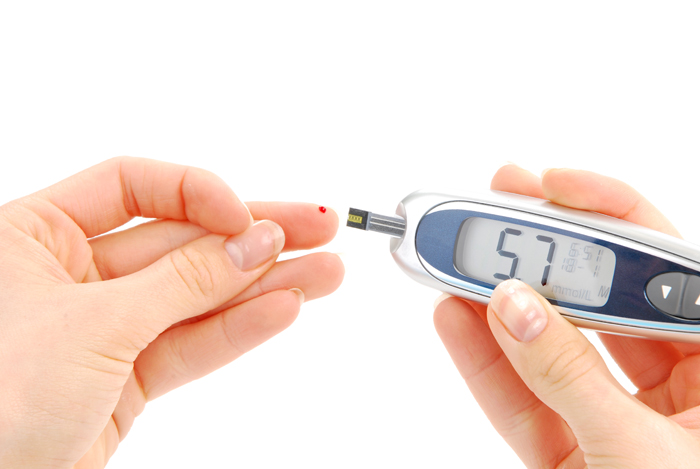Whenever I see commercials on new diabetic medications, I always come up with the impression-hopefully I am wrong- that the actors are having fun by the way they high five each others, or twist and turn. Whatever the commercials show, being diabetic can be devastating. In three decades of medical practice, I have seen diabetes mellitus in all of its dimensions.
On Thanksgiving Day in the year 2000, I was called to the hospital for an emergency surgery. As I headed to the locker room, the surgeon told me he had just met with the seventy year-old diabetic patient’s family. “Dr. Saliu,” he said, “The patient is too sick to have surgery.” “I told the family,” he went on, “He could die on the operating table.” Because of the surgeon’s concerns, the family had declined to consent to below the knee amputation. I told the surgeon to give me time to assess the patient and talk to the family.
The patient’s left foot had turned black from gangrene, or tissue death, his consciousness was impaired, and he was hypotensive, so I was concerned. The toxins released by the blackened foot caused his serious sickness. In other cases like this, once the source of the toxins is amputated, patients usually get better. I planned to use that possibility to convince the family to consent to surgery.
There were about twenty people in the waiting room: daughters, sons, and grandchildren. It was supposed to be a Thanksgiving reunion, but when the patriarch of the family fell ill, they all headed to the hospital. After I talked to the family, they gave consent, surgery was done, and his awareness improved after surgery. The old man, and his oldest daughter were all smiles when I returned for the post-operative visit the next morning. Having a below the knee amputation was just the first battle won by this diabetic patient. First, he had to learn to use a prosthetic leg. Then, he had to comply with his medications to mitigate further amputation of the limb stump.
Not all diabetic patients are adherent to treatments needed to maintain their health. A noncompliant patient I had several years ago told me: “I don’t like medications,” just before he was taken in for an above the knee amputation after having had a below the knee amputation years earlier. I have had patients come in for hip disarticulation: removal of the limb stump from the hip joint. There are other long-term complications of diabetes. Eye complications may include vitreous hemorrhage (bleeding in the eye), proliferative retinopathy (pathologic growth of blood vessels in the retina), retinal detachment, and of course, blindness. Patients may also develop chronic kidney disease that culminates in a need for dialysis. Other conditions that coexist with long-term complications of diabetes are hypertension and-coronary and cerebrovascular diseases that increase the risk of heart attack and stroke.
 I strongly recommend, regardless of your state of health or physique, thin or overweight, that you visit your doctor at least once a year to be checked for diabetes mellitus. The tests are simple: fasting blood sugar and hemoglobin A1C levels are measured from a blood sample. If you are pre-diabetic, you will be advised to cut down your refined carbohydrate intake, eat more vegetables, fruits, and nuts, and to exercise more frequently. If you are diabetic, on top of the previous advise, you will also be asked to take certain medications. Taking diabetic medications is not an excuse to continue with your old, unhealthy lifestyle. Be compliant with medications, and go to your follow up appointments.
I strongly recommend, regardless of your state of health or physique, thin or overweight, that you visit your doctor at least once a year to be checked for diabetes mellitus. The tests are simple: fasting blood sugar and hemoglobin A1C levels are measured from a blood sample. If you are pre-diabetic, you will be advised to cut down your refined carbohydrate intake, eat more vegetables, fruits, and nuts, and to exercise more frequently. If you are diabetic, on top of the previous advise, you will also be asked to take certain medications. Taking diabetic medications is not an excuse to continue with your old, unhealthy lifestyle. Be compliant with medications, and go to your follow up appointments.
As Africans, it is relevant here to examine how our culture affects our health. Our ancestors had no automobiles, so they went everywhere on foot. Constant movement was a way of life. It can even be considered a form of treatment in accordance to what Hippocrates (c.460-c.370 BC), the father of Western medicine said thousands of years ago, ”Walking is man’s best medicine.” This is worthy of emulation. Walk with a friend or a spouse on a regular basis; join or form a walking club or work out at a gym. Helping out with chores at home is another opportunity to be active. Do not be couch bound. Hippocrates emphasized the therapeutic value of walking further when he wrote, “If you are in a bad mood go for a walk. If you are still in a bad mood go for another walk.”
What we should deviate from in the ways of life of our ancestors is eating overcooked meals without raw vegetable salad on the side. It is customary to eat a big bowl of rice, pounded yam, and other swallow foods without raw vegetables. Eating rice or pounded yam just before bedtime, like I used to do, is bad for your health and weight. Up till five years ago, I would eat like that, even if I got home at midnight and then go to bed. What I do now is different. It does not matter what I eat at breakfast, lunch, and dinner, there is always about two handfuls of raw vegetable salad on the side, and absolutely, no carbohydrate based foods after 5 PM. The only thing I eat after 5 PM is vegetable soup with meat, chicken, or fish. That is how I eat less diabetogenic refined carbohydrate while still consuming large amounts of raw plant-based foods that supply my body with required micronutrients. I will conclude this article with another quote from the father of Western medicine: “Let food be thy medicine and medicine be thy food.”

































